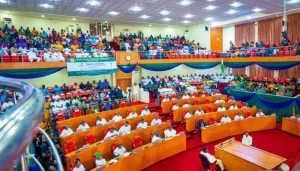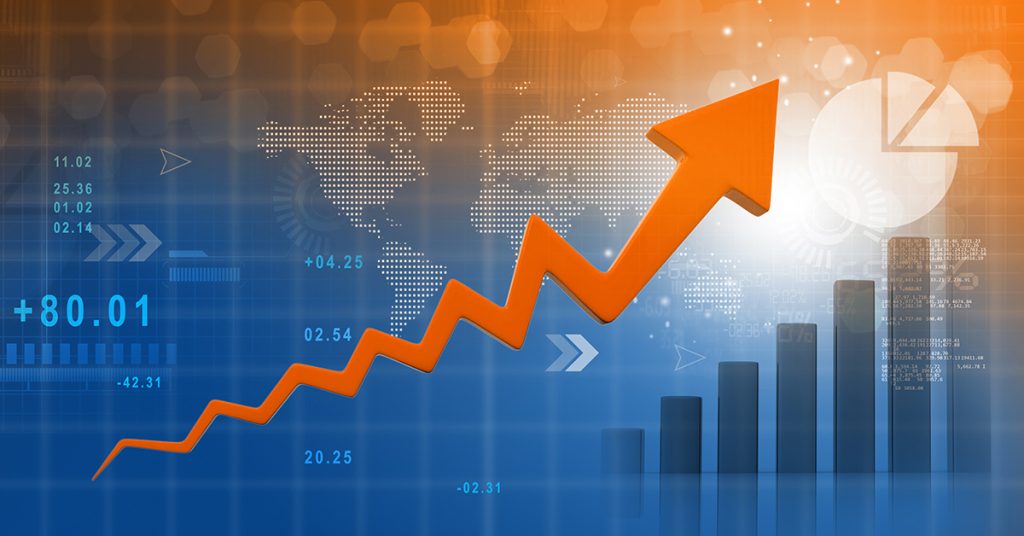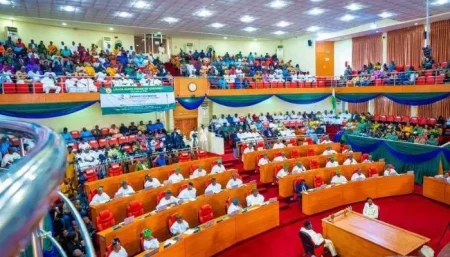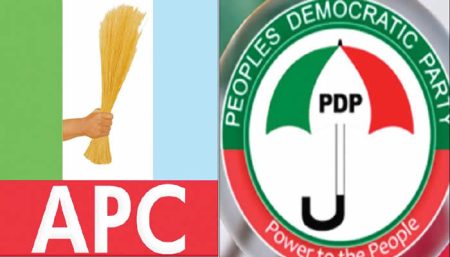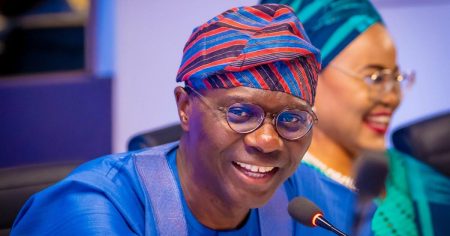Nigeria’s Economic Performance in the First Half of 2025: A Positive Trajectory with Challenges
Nigeria’s economy demonstrated resilience in the first half of 2025, achieving an estimated growth rate of 3.7% year-on-year. This positive performance was primarily driven by a resurgence in the oil sector, coupled with improvements in the manufacturing and services sectors. The growth aligns with projections made by various institutions, including Stanbic IBTC Bank, which forecasted a 3.5% annual growth. However, the agricultural sector, traditionally a significant contributor to the Nigerian economy, lagged behind its long-term average growth rate of 3.6%, posing a potential constraint on overall economic expansion. While this growth is encouraging, it falls short of the more optimistic projections by the Central Bank of Nigeria (4.17%) and the Nigerian Economic Summit Group (5.5%). This discrepancy highlights the inherent uncertainties in economic forecasting and the influence of external factors on Nigeria’s economic trajectory.
The Purchasing Managers’ Index (PMI), a key indicator of economic activity, provides further insights into Nigeria’s economic performance. The June PMI reading of 51.6 points indicated continued expansion, albeit at a slower pace compared to previous months. This slowdown was primarily attributed to a decline in manufacturing output, even as other sectors, including services, maintained positive growth momentum. The PMI report also pointed to sustained growth in new business, suggesting continued demand for goods and services. Despite the slight deceleration in overall growth, business confidence remained high, reaching its highest level since August 2022. This optimism stems from companies’ plans for operational expansion and infrastructure investment, signaling positive prospects for future growth.
Inflation, Interest Rates, and Structural Reforms: Shaping Nigeria’s Economic Outlook
Inflationary pressures, a persistent concern for the Nigerian economy, are expected to remain relatively subdued in 2025 compared to the previous year. This anticipated softening of inflation creates room for potential reductions in interest rates. Analysts predict interest rate cuts of 150-200 basis points in 2025 and a further 200-250 basis points in 2026. Lower interest rates can stimulate economic activity by reducing borrowing costs for businesses and consumers, thereby encouraging investment and spending. Coupled with ongoing structural reforms, including the removal of protectionist policies and the gradual dissipation of the impact of earlier government reforms, these factors are expected to contribute to medium-term economic growth. The anticipated rebasing of Nigeria’s GDP could further amplify the growth figures, potentially pushing the estimated 3.5% growth to 4.2%.
Challenges and Opportunities: Navigating the Path to Sustainable Growth
Despite the positive outlook, challenges remain. The slowdown in manufacturing output, as reflected in the PMI, highlights the need for policy interventions to support this crucial sector. Addressing factors such as power supply challenges, material shortages, and delayed payments, which have contributed to increased backlogs of work, is essential for revitalizing manufacturing activity. Improving infrastructure, particularly road networks, is also crucial for streamlining supply chains and reducing delivery times. The agricultural sector’s underperformance requires attention to enhance productivity and ensure food security. Investing in modern agricultural techniques, providing access to finance for farmers, and addressing structural bottlenecks in the agricultural value chain can unlock the sector’s potential and contribute to broader economic growth.
The high level of business confidence, underpinned by plans for expansion and investment, presents a significant opportunity for Nigeria to capitalize on its growth momentum. Encouraging private sector investment through a conducive business environment, streamlined regulations, and targeted incentives can further stimulate economic activity. Leveraging the opportunities presented by the African Continental Free Trade Area (AfCFTA) can also boost trade and investment, driving economic diversification and integration into the global economy. Addressing infrastructural deficits, particularly in power and transportation, is crucial for unlocking the full potential of various sectors and supporting sustainable economic growth.
The Role of Oil Production and Sectoral Performance in Driving Growth
The resurgence in oil production has been a pivotal factor in Nigeria’s economic recovery. Higher oil prices and increased production volumes have contributed significantly to government revenue and foreign exchange earnings. However, reliance on oil revenue exposes Nigeria to the volatility of global oil markets. Diversifying the economy away from oil dependence remains a critical imperative. Strengthening non-oil sectors such as manufacturing, agriculture, and services can create a more resilient and sustainable economic base. Promoting value addition in agricultural products, developing manufacturing capacity, and fostering innovation in the services sector can create new sources of growth and employment.
The PMI report reveals a mixed picture of sectoral performance. While manufacturing output experienced a decline, other sectors, particularly services, maintained positive growth. The services sector, encompassing a wide range of activities from telecommunications to finance, has emerged as a key driver of economic growth in recent years. This sector’s resilience demonstrates its potential to absorb labor and contribute to overall economic development. Further development of the services sector through investments in skills development, technology adoption, and regulatory reforms can enhance its contribution to the Nigerian economy. Addressing the challenges faced by the manufacturing sector, such as power shortages and access to finance, is crucial for restoring its growth trajectory and maximizing its potential as a job creator.
The Importance of Policy Consistency and Long-Term Planning
Sustaining Nigeria’s economic growth requires consistent and predictable policy implementation. Frequent policy changes can create uncertainty and discourage investment. A stable macroeconomic environment, characterized by low inflation and stable exchange rates, is essential for fostering investor confidence and attracting foreign direct investment. Developing a long-term economic development strategy with clear objectives and targets can provide a roadmap for sustainable growth and development. This strategy should prioritize investments in human capital, infrastructure, and technology to enhance productivity and competitiveness. Engaging in robust public-private partnerships can leverage the expertise and resources of both sectors to drive economic transformation. Strengthening institutions, improving governance, and tackling corruption are crucial for creating a level playing field and ensuring that the benefits of economic growth are shared equitably.




